
The 1936 Summer Olympics, officially the Games of the XI Olympiad and officially branded as Berlin 1936, was an international multi-sport event held from 1 to 16 August 1936 in Berlin, Germany. Berlin won the bid to host the Games over Barcelona on the 29th IOC Session on 26 April 1931. The 1936 Games marked the second and most recent time the International Olympic Committee gathered to vote in a city bidding to host those Games. Later rule modifications forbade cities hosting the bid vote from being awarded the games.
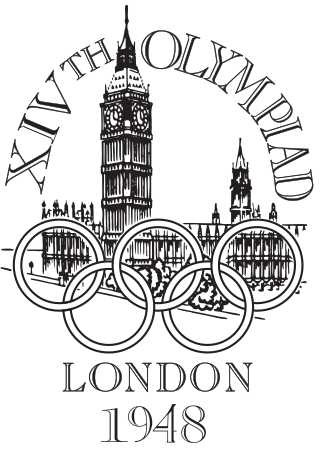
The 1948 Summer Olympics, officially the Games of the XIV Olympiad and officially branded as London 1948, were an international multi-sport event held from 29 July to 14 August 1948 in London, United Kingdom. Following a twelve-year hiatus caused by the outbreak of World War II, these were the first Summer Olympics held since the 1936 Games in Berlin. The 1940 Olympic Games had been scheduled for Tokyo and then for Helsinki, while the 1944 Olympic Games had been provisionally planned for London. This was the second time London hosted the Olympic Games, having previously hosted them in 1908, making it the second city to host summer olympics twice. The Olympics would return again to London 64 years later in 2012, making London the first city to host the games thrice, and the only such city until Paris, who hosted their third games in 2024, and Los Angeles, who will host theirs in 2028. The 1948 Olympic Games were also the first of two summer Games held under the IOC presidency of Sigfrid Edström.
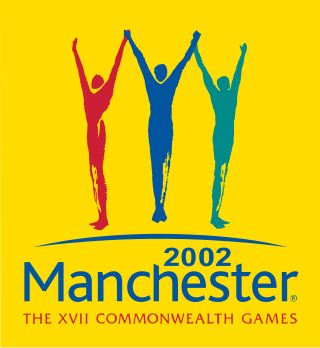
The 2002 Commonwealth Games, officially known as the XVII Commonwealth Games and commonly known as Manchester 2002, were an international multi-sport event for the members of the Commonwealth held in Manchester, England, from 25 July to 4 August 2002. According to planning, this event was to be held in a country in the United Kingdom as part of the Golden Jubilee of Elizabeth II, head of the Commonwealth. England was the only bidder for the event and, in an internal process, Manchester was selected for the 2002 Games ahead of London. The Manchester bid used projects which were part of the failed bid for the 2000 Summer Olympics and Paralympics, which were awarded to Sydney, Australia. The 2002 Commonwealth Games was, prior to the 2012 Summer Olympics, the largest multi-sport event ever to be held in the UK, eclipsing the London 1948 Summer Olympics in terms of teams and athletes participating. The 2002 Commonwealth Games had the largest number of events of any Commonwealth Games in history, featuring 281 events across 17 sports.

The 1908 Summer Olympics were an international multi-sport event held in London, England, from 27 April to 31 October 1908. The 1908 Games were originally scheduled to be held in Rome, but were relocated on financial grounds following the violent eruption of Mount Vesuvius in 1906, which claimed over 100 lives; Rome eventually hosted the Games in 1960.

Olympic sports are sports that are contested in the Summer Olympic Games and Winter Olympic Games. The 2024 Summer Olympics included 32 sports; the 2022 Winter Olympics included seven sports. Each Olympic sport is represented at the International Olympic Committee (IOC) by an international governing body called an International Federation (IF).

Rugby union has been a men's medal sport at the modern Summer Olympic Games, being played at four of the first seven competitions. The sport debuted at the 1900 Paris games where the gold medal was won by the host nation. It was subsequently featured at the London games in 1908, the Antwerp games in 1920 and the Paris games in 1924.
Cycle sport is competitive physical activity using bicycles. There are several categories of bicycle racing including road bicycle racing, cyclo-cross, mountain bike racing, track cycling, BMX, and cycle speedway. Non-racing cycling sports include artistic cycling, cycle polo, freestyle BMX, mountain bike trials, hardcourt bike polo and cycleball. The Union Cycliste Internationale (UCI) is the world governing body for cycling and international competitive cycling events. The International Human Powered Vehicle Association is the governing body for human-powered vehicles that imposes far fewer restrictions on their design than does the UCI. The UltraMarathon Cycling Association is the governing body for many ultra-distance cycling races.

White City Stadium in London, England, was built for the 1908 Summer Olympics. It hosted the finish of the first modern marathon and swimming, speedway, boxing, show jumping, athletics, stock car racing, concerts and a match at the 1966 World Cup.

A team sport is a type of sport where the fundamental nature of the game or sport requires the participation of multiple individuals working together as a team, and it is inherently impossible or highly impractical to execute the sport as a single-player endeavour. In team sports, the cooperative effort of team members is essential for the sport to function and achieve its objectives. The objective often involves teammates facilitating the movement of a ball or similar bob in accordance with a set of rules in order to score points. Examples are basketball, volleyball, rugby, water polo, handball, lacrosse, cricket, baseball, and the various forms of football and hockey. These sports emphasize teamwork, strategy, and coordination among team members while competing against opposing teams to achieve a common goal. Team sports do not include individual or individual-to-team events within a sport.

Cycle polo, bicycle polo, or bike polo is a team sport, similar to traditional polo, except that bicycles are used instead of horses. There are two versions of the sport: Hardcourt Bike Polo and grass court bike polo. The hardcourt game saw a sharp spike in interest in the first decade of the 21st century and new teams are sprouting up across the world in China, Canada, Ireland, Switzerland, France, India, Germany, Pakistan, Ukraine, Russia, Malaysia, Sri Lanka, Indonesia, Hungary, Australia, New Zealand, Sweden, England, Scotland, Argentina, Italy, Spain, United States, Poland, Croatia, Slovenia, Lithuania, Nepal, Brazil and Cuba.

Sir Christopher Andrew Hoy is a former track cyclist and racing driver from Scotland who represented Great Britain at the Olympic and World Championships and Scotland at the Commonwealth Games.
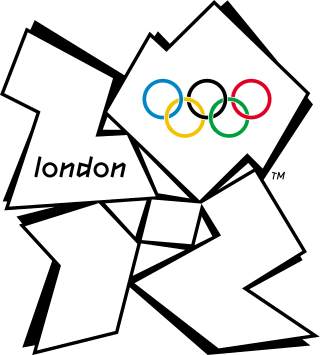
The 2012 Summer Olympics, officially the Games of the XXX Olympiad and also known as London 2012, were an international multi-sport event held from 27 July to 12 August 2012 in London, England, United Kingdom. The first event, the group stage in women's football, began on 25 July at the Millennium Stadium in Cardiff, Wales, followed by the opening ceremony on 27 July. There were 10,518 athletes from 206 National Olympic Committees (NOCs) who participated in the 2012 Olympics.

The United Kingdom has been represented at every modern Olympic Games. By end of the 2024 Summer Olympics, it is third in the all-time Summer Olympic medal table by overall number of medals, and fourth in number of gold medals won. London hosted the Summer Olympic Games in 1908, 1948 and 2012.
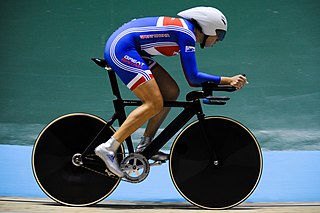
Rebecca Jayne Romero, MBE is an English sportswoman, a former World Champion and Olympic Games silver medallist at rowing, and a former World champion and an Olympic champion track cyclist.
Ernest Payne was an English track cycling racer. Born in Worcester, he won a gold medal in the team pursuit at the 1908 Summer Olympics in London for Great Britain and went on to play football, including two games as an amateur for Manchester United.

Benjamin Jones was a British track cycling racer who competed in the 1908 Summer Olympics.

The cycling competitions at the 2012 Olympic Games in London took place at five venues between 28 July and 12 August. The venues were the London Velopark for track cycling and BMX, and Hadleigh Farm, in Essex, for mountain biking. The road races took place over a course starting and ending in The Mall in central London and heading out into Surrey, while the time trials started and finished at Hampton Court Palace in Richmond upon Thames. Eighteen events were contested and around 500 athletes participated.
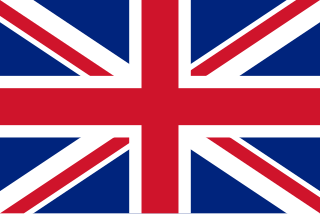
Great Britain and Northern Ireland, represented by the British Olympic Association (BOA), competed at the 2012 Summer Olympics in London, United Kingdom, from 27 July to 12 August 2012 as the host nation and the team of selected athletes was officially known as Team GB. British athletes have competed at every Summer Olympic Games in the modern era, alongside Australia, France and Greece, though Great Britain is the only one to have won at least one gold medal at all of them. London was the first city to host the Summer Olympics on three different occasions, having previously done so in 1908 and 1948. It was joined by Paris in 2024 and will be joined by Los Angeles in 2028 in hosting the Olympic Games for a third time. Team GB, organised by BOA, sent a total of 541 athletes, 279 men and 262 women, to the Games, and won automatic qualification places in all 26 sports.
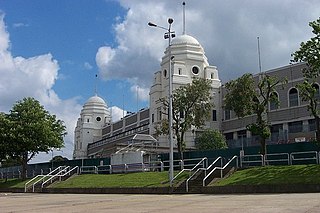
A total of twenty-five sports venues were used to host the events of the 1948 Summer Olympics in London, United Kingdom. For the first time in the history of the modern Olympic Games, the diving, gymnastics, swimming, and water polo competitions were held indoors. These Games have since been nicknamed the "Austerity Games" for the tight control of costs at a time when the host nation was still under rationing, which resulted in a total expenditure of around £750,000. All of the venues were already in place and required only temporary modifications. The organizing committee decided not to build an Olympic Village; instead, foreign athletes were housed in makeshift camps at military bases and colleges around London, while local athletes were told to stay at home. Despite these measures, the combined venues of the 1948 Summer Olympics recorded the highest attendance figures for a Games at that time.

The rate of participation of women in the Olympic Games has been increasing since their first participation in 1900. Some sports are uniquely for women, others are contested by both sexes, while some older sports remain for men only. Studies of media coverage of the Olympics consistently show differences in the ways in which women and men are described and the ways in which their performances are discussed. The representation of women on the International Olympic Committee has historically run well behind the rate of female participation, and long missed its target of a 20% minimum presence of women on their committee. As of 2023, 41.1% of members are women. The 2024 Paris Olympics were notable for being the first to have the goal of achieving gender parity between men and women.


















